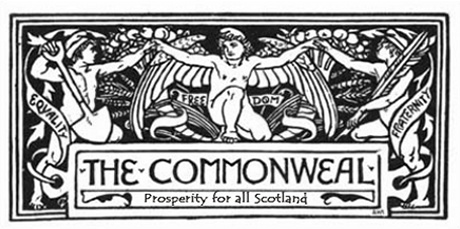I had the great pleasure of attending a “thinking and creating” day organised by the Common Weal, “think and do tank” and chaired by the very engaging and upbeat Katie Gallogly-Swan. They described the day as a “policy lab” with the explicit aim of connecting academics and experts in education with “interested citizens” to “ask some of the big questions” and to help shape policy for Scotland going forward.
The day began with us considering the questions that mattered most to us and which we felt were fundamental to improving education. The central chosen question, underpinning it all was “what is the purpose of education for the nation?” The other popular questions were:
- How can the final qualifications system be made to better serve the needs of all?
- How can equality for all be more clearly baked-in to everything that we do?
- What should be done to help the system realise its ambition to implement the Curriculum for Excellence?
I am sure everyone took their own strong conclusions and learning from the very rich and open plenary that knitted up the day’s discussion, but I left further reinforced in my view that what is needed is a “strategy for integrity” to ensure that the “Curriculum for Excellence (CfE)” means more in practice than at present! The day coalesced around an early proposition by Bill Boyd (Literacy Adviser), that CfE was already an excellent and well-consulted plan for an egalitarian, effective and individualised education experience; Bill simultaneously conceded that our implementation has left much to be desired, with the model being hindered by traditional forces such as SQA examinations which seem to pay little heed to the aspirations of the new curriculum, or inspection which seemed to hold back innovation.
The new curriculum is based to a significant degree on “The Treasure Within (UNESCO)” with its four pillars of learning:
Learning to know: to provide the cognitive tools required to better comprehend the world and its complexities, and to provide an appropriate and adequate foundation for future learning.
Learning to do: to provide the skills that would enable individuals to effectively participate in the global economy and society.
Learning to be: to provide self analytical and social skills to enable individuals to develop to their fullest potential psycho-socially, affectively as well as physically, for a all-round ‘complete person.
Learning to live together: to expose individuals to the values implicit within human rights, democratic principles, intercultural understanding and respect and peace at all levels of society and human relationships to enable individuals and societies to live in peace and harmony.
This has been translated and modernised by our own curriculum which clearly targets the following (among other outcomes):
- personalisation and choice, although you could argue that that is only a limited version where the factory model of schooling allows.
- Interdisciplinary learning (IDL), although ten years on, strong examples of this “real application of learning” are in only the minority of schools.
- Breadth and depth of learning, which are quite untestable and a bit “mom’s apple pie” in scope and ambition anyway, so what they have led to is no change.
- An exam system to declutter the curriculum and to reflect the more joined-up learning that young people are now undertaking, which teachers are preparing learners for by cutting up old, pre CfE papers, since much of what is in the new exams is similar to the old!
I largely agree with Bill that CfE contains good things, largely agreed on by teachers and society, some of it clearly too woolly and contradictory, but that we are simply not delivering it in the way it’s authors and contributors intended. Perhaps now, as a possible conclusion from the policy lab, it is time for us to refocus on delivery, not rewrites, and attempt to deliver a Curriculum with Integrity! If we believe the examination tail has too long wagged the learning dog, then we must redesign the exams to reflect that belief. If we believe IDL is a major delivery mode of our curriculum then we must break down some of the subject silos at all levels and deliver integrated project-based learning. If we believe individualisation matters, then we must have personal choices available throughout regardless of the inconvenience to our current models.
A delivery strategy to do what we say we value might just be the saving of a good curriculum that we are failing to deliver; CfI instead of CfE anyone?
